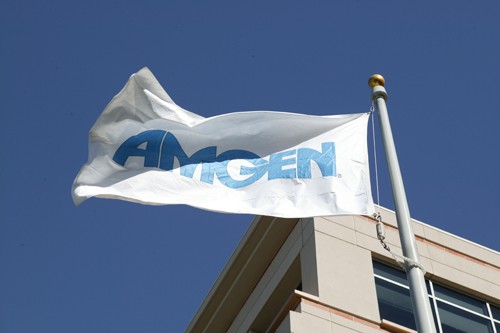
Amgen’s cholesterol-lowering antibody evolocumab has scored another direct hit in a phase 3 clinical trial, this time showing its efficacy in patients with a serious genetic disorder of lipid metabolism.
The Tesla study enrolled 49 patients with homozygous familial hypercholesterolaemia (HoFH), a rare disease that leads to extremely high levels of LDL cholesterol in the blood and renders patients susceptible to serious cardiovascular complications such as atherosclerosis.
HoFH is caused by a deficiency in the LDL receptor involved in trafficking cholesterol out of the blood and tends to be very resistant to treatment even with maximal-dose statins. At the moment, patients are typically treated with a combination of statins, Merck & Co’s Zetia (ezetimibe) and other cholesterol-lowering drugs such as niacin, with limited efficacy.
Given as a subcutaneous injection once per month, evolocumab met its primary objective of achieving a “clinically meaningful and statistically significant” reduction in LDL cholesterol compared to placebo in HoFH patients, said Amgen, which will present the data in more detail at a forthcoming scientific congress.
The PCSK9 inhibitor was delivered on top of stable background therapy based on statins and other cholesterol-lowering medication, said Amgen’s R&D head Sean Harper, who noted evolocumab is the first drug in the class to show efficacy in HoFH patients.
“These results add to the data from our five previously announced positive phase 3 studies of evolocumab in other patient populations,” added Harper.
In January, Amgen reported phase 3 data showing evolocumab was effective in the 5 to 15 per cent of patients who cannot tolerate statins, as well as patients with heterozygous familial hypercholesterolaemia (HeFH), while earlier results indicated that the antibody could achieve additional LDL cholesterol reductions when given in combination with statins.
The evidence is clearly mounting about the potential of the PCSK9 inhibitor class as an effective means to reduce cholesterol, although celebrations may remain a little restrained while the potential implications of an FDA investigation into their safety plays out.
Earlier this month, Sanofi and Regeneron – which are developing a rival PCSK9 inhibitor called alirocumab – revealed that the FDA had asked for an assessment of the drug’s potential to cause neurocognitive adverse events, although this is also mentioned on the label of statins.
Amgen said evolocumab was generally well-tolerated, with the most common adverse events upper respiratory tract infection, influenza, gastroenteritis and nasopharyngitis.
Analysts at Deutsche Bank have suggested evolocumab could achieve peak sales of $2.5bn in 2020 if it reaches the market.




